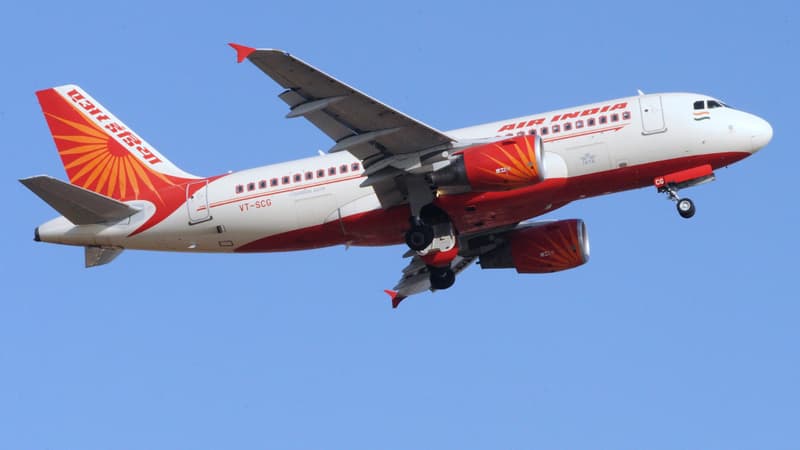Recently privatized, Air India will not only develop its fleet, as evidenced by giant contracts for 470 aircraft, but also refine its services, explained its new general manager, Campbell Wilson.
The New Zealander, a defector from Singapore Airlines, says he is convinced of the development potential of air transport in India, whose companies monopolized commercial advertisements at the Bourget air show this week.
Air India under reconstruction
Air India, a former state-owned company, was bought in 2021 for $2.4 billion by Indian industrial group Tata with ambitions to transform the indebted airline.
Launched, the transformation plan includes a reduction in the number of companies supervised by the group. Out of four, low-cost Air India, Air India Express and Air Asia, and Vistara, only two should remain. “We have already obtained the green light from the regulator to unite the two low-cost airlines, and we have applied for the same operation for Air India and Vistara, with the latter brand having to be phased out in favor of Air India in the long term,” explains Campbell Wilson.
India, the third largest air transport market
In addition to the merger of its brands, Air India aims to expand its fleet to gain market share from its competitors. The company announced a mega-order in February for 470 Airbus and Boeing jets.
Among the 470 aircraft on order, 70 are wide-body aircraft such as the Airbus A350 and Boeing 787 Dreamliner. For the boss who points out that there are currently only 50 wide-body jets based in India, which is “totally out of step with the potential size of the market”, it is therefore a strategic purchase.
As for the approximately 400 single-aisle aircraft on order, they will be operated to meet the demand of the domestic market, which is growing “very rapidly”, but also for short international flights.
Air India facing international competition
International competition is fierce and for India, it is not far behind. Gulf airlines are industry heavyweights with, among others, Qatar Airways and Emirates, both recently named among the world’s best airlines by Skytrax. To face these major competitors, does Air India intend to adapt these services and its culture?
He adds that the transformation of a company, whatever the sector, implies a change of culture and state of mind.
“In the 1960s and 1970s, Air India was renowned for the quality of its service and was considered one of the best airlines in the world,” he notes.
Source: BFM TV


